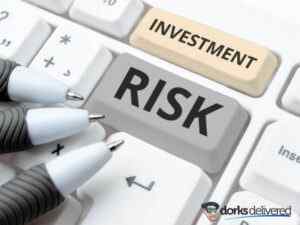Are you looking to sell your business? Learn more about preparing your business for sale.
Grant Titman is the cofounder of q4 financial and specialises in delivering generational wealth financial services to the owners of 7 figure businesses. He and his team have spent the last 28 years working in this market and have a deep understanding of the unique problems experienced by these small businesses and their owners. Away from q4 financial, Grant spends his time with his family on a small farm in Samford where they are regenerating the landscape and creating a thriving food hub to support themselves and their local community.
Recently, he joined Business Built Freedom With Joshua Lewis to talk about building a business with the ultimate goal to sell. Listen to the podcast or scroll down to read the article based on it.
Turn your IT into a utility to have more time to work on your business.
Are you looking to sell your business or build your business to sell? How do you build your business for sale? When is the right time to do this? And how do you exactly prepare your business for sale? According to Grant, the right time is when you feel your energy wane. But the best time to get your business ready for that point, that is, to be able to sell when your energy is not there, is when you are starting your business.
The best exits happen when someone has a goal of selling their business in the future. Most business owners don’t know the exact time to sell their business. The preparation takes at least 3-5 years but the best exits take 10-15 years.
Reasons Why Business Owners Sell Their Businesses

- They are sick of it.
- They have planned for it for years.
- They have a terminal illness.
- Their direction in life has changed.
Others don’t know they want to sell their business until they are approached by an investor. Grant says the worst is when the energy is gone and you just want to get out. If that’s the case, you’re probably off your plateau or a little bit down. Buyers want to see upward trajectory, not downward trajectory in your business.
Enjoy big savings on hardware, software and IT support. Sign up today!
How Can I Grow My Business for Sale?
People view small businesses, that is, under $10 million range of sale, as a lot more risks so being able to wake up and say you are going to sell it tomorrow is a very unlikely situation. So how do you derisk your investment? The business sale or the process of getting a business ready for sale always starts by looking at where the risks are, such as the weak points and the risks to future income. That will be different at different times.
Risks to Look At

For businesses with a turnover of maybe less than $250,000, oftentimes people actually want to buy a job. They recognise that a very small business with that level of turnover is actually a salable asset, but pretty much for when the rules of return on investment don’t count. Once you move past that, then an investor is looking to get a salary.
So regularly they’ll also be looking to be involved in that business because they’ve got core skills that attract them to that business, as opposed to simply investing their money and having a management team run it and send the dividends. They want to be involved and they will see that they’re buying this business for X amount of dollars and they can add value to it to take it further and add more value to it.
The return on your money is the key thing. And the risks involved in that are when people won’t be buying a job. If you’ve got a million-dollar turnover business and it makes $200,000 a year and you’re not drawing a salary and you’re working 80 hours a week, it might not be a very saleable asset.
Have the peace of mind that your systems are running smoothly while you focus on growing your business.
Multipliers
When talking about turnovers, something that usually comes up is multipliers. If you’ve got a business that has a clear monthly recurring revenue and you sell it, you get a multiplier of two x or three x on the monthly amount. If you’ve got contractual terms around ensuring that is a consistent flow of income, say for 2 to 3 years, and that turns from a two or three multiplier to a five times multiplier.
The multiplier is a function that creates the value as a function of two things. It’s the future to maintain learning. Whatever you can demonstrate as your future maintained learnings, apply a multiplier to that two, three, or five times. Those factors demonstrate to a potential buyer how much profit you believe your business can make next year, the year after, and the year after that. The higher that multiplier is, the greater the risk and the lower rate of return the buyer is prepared to accept. If you can demonstrate you’ve got strong recurring revenue and your recurring revenue is building month on month, year on year, then you’re demonstrating to the potential buyer that every year your value is going up and their risk is going down. It’s helping a business or a potential buyer understand that whatever they pay you today, it’s likely that they will get their return on their money.
Join the Dollar IT Club today to enjoy big savings on IT support, hardware and software. Learn more!
How to Prepare Your Staff for a Sale
In principle, the more reliance that the team places on Joe the owner (if they can see that Joe does everything in all of the areas) and they know that Joe’s not going to be there anymore, then your team will be worried that the new owner won’t get it.
Should You Tell the Team the Business Is for Sale?
There’s a huge risk involved in telling the team that the business is now for sale. But if you set your business up well and there are different people who are doing various parts of the entire key critical functions of that business, your team may be less worried when the time comes.
It’s how you operate and how you get other people involved in the key parts of the business that determine whether or not your team will feel good about the exit.
Accounting and Financial Planning

How Long Does It Take To Buy an Existing Business
Every industry has different brokers that are most suitable to be able to find that exit solution for you. There are different buyers, and how you connect the buyer is dependent upon your industry. Some business owners may go down a few rabbit holes to get to the right person. Generally, 6 months is very lucky but it usually takes 12 months or more.
Grant Titman
Over the last 28 years, Grant Titman and his team have created a methodology that has delivered financial independence to many of the businesses that they have worked with, himself included. They en sure that all of the people they work with are extracting their wealth along the way so that they have financial freedom and choices to make when they are ready.
If you are looking for someone who can help you out with your exit strategy, the financial or accounting aspect or both, book a consultation. Grant and his team will organise a phone call with the right person to assist you. Go to q4 financial to see the roadmap to achieving financial independence. It includes a Reporting Framework to help you understand the progress you are making towards your end goals.
Recommended Books: The E-Myth Revisited and The Five Dysfunctions of a Team
If you are in the early stages, The E-Myth Revisited makes sense. If someone who wants to start a business comes to me, I will give them The E-Myth Revisited every single time. In a mature business, I like Patrick Lencioni’s The Five Dysfunctions of a Team. It helps you move past an owner to a leadership team, how to get a leadership team in place and what you would need to do as an owner. Once you’ve got your head around the fact that you’re not the business, it’s about building a core leadership team.
On Business Freedom
“Where I’m at, I’m seeing those clients move to the next stage out of their business and enjoy the next phase of life in whatever way. They might not necessarily be old and retired, that’s not necessarily an endgame, but it’s moving past their business to other activities in life, which we told them at the start was always possible. Seeing that promise come to life, that’s the most satisfying part of the work we do.”





























